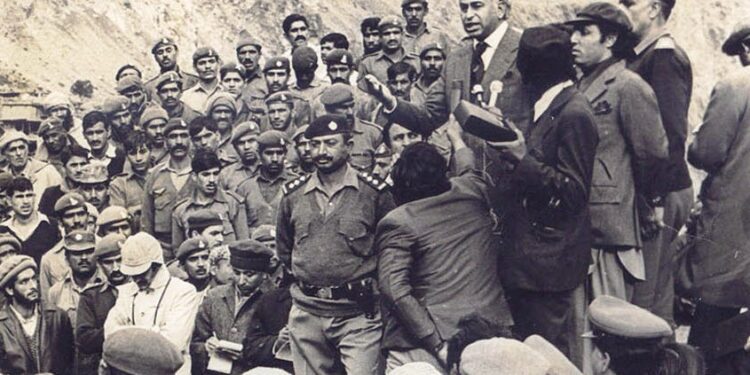The Supreme Court of Pakistan is set to reevaluate the controversial 1979 death sentence of former Prime Minister Zulfikar Ali Bhutto.
A nine-member bench will hear a plea filed by Bhutto’s son-in-law, Asif Ali Zardari, seeking a review of the verdict that led to Bhutto’s hanging.
This unprecedented move raises questions about the legalities, historical context, and potential implications for Pakistan’s judicial system.
Who Was Bhutto and Why the Death Sentence?
Zulfikar Ali Bhutto, a prominent Pakistani politician, served as the country’s president and later as the prime minister.
Deposed in a military coup in 1977, Bhutto faced accusations of orchestrating a political rival’s murder, leading to a controversial trial.
Despite widespread criticism of procedural flaws and a flawed trial, Bhutto was sentenced to death in 1979 and subsequently hanged.
The 2011 Presidential Reference:
In 2011, Asif Ali Zardari filed a presidential reference with the Supreme Court seeking a review of Bhutto’s death penalty.
The reference raised concerns about the legality of the 1979 verdict, focusing on procedural flaws and questions about the trial’s fairness.
The review process initiated in 2011 faced interruptions and remained unresolved for years.
Why the Case is Being Heard Now:
The Supreme Court’s decision to revisit the Bhutto case in December 2023 is not solely tied to the upcoming general elections.
Analysts suggest it reflects a judicial effort to rectify past mistakes and address the perception of a judiciary aligned with undemocratic actions.
Chief Justice Qazi Faez Isa, openly critical of the 1979 judgement, may view this as an opportunity to correct historical injustices.
Significance of Hearing the Reference:
The potential reversal of the 1979 verdict could set a crucial precedent for addressing historical injustices in Pakistan’s judicial system.
Analysts argue that such a move could restore the legitimacy of the judiciary and underscore the importance of legal independence.
Beyond legal considerations, the decision holds symbolic significance in addressing the impact of military interventions on Pakistan’s political landscape.
In conclusion, the Supreme Court’s decision to reevaluate Bhutto’s 1979 death sentence brings attention to the complexities of Pakistan’s judicial history and the ongoing quest for justice and accountability.
















